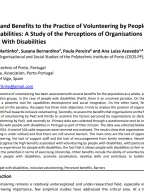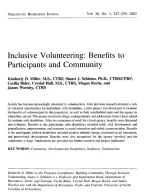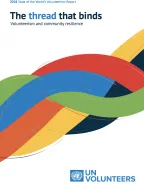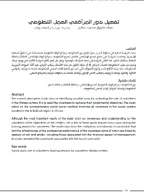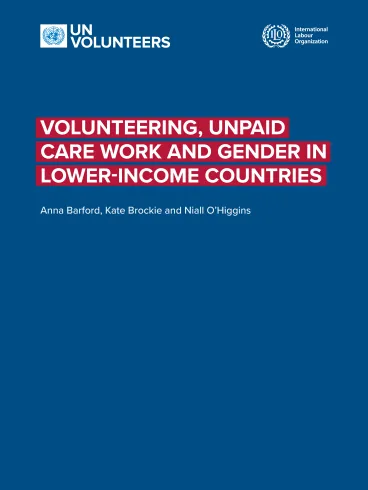
Technical paper
Volunteering, unpaid care work and gender in lower-income countries
Gender and Volunteering
Download
Fast read
In recognition of the interactions and similarities between volunteering and unpaid care work, this research paper published by the International Labour Organization and United Nation Volunteers reviews and analyzes the gendered patterns of volunteering and unpaid care work in lower-income countries by combining a literature review with a statistical analysis of Bangladesh.
Synthesis
- There is a conceptual overlap between voluntary work and unpaid care work, as some voluntary work provides care work outside of the household. Many other volunteering activities do not count as care work, and unpaid care work for one’s own household is not classified as volunteering.
- Time spent doing voluntary and unpaid care work relates to one another, often in distinctly gendered ways. Both voluntary work outside the household and unpaid care work within the household provide valuable contributions to individuals and communities, helping to maintain the preconditions of social and economic life.
- In this report, a case study of Bangladesh addresses the relative lack of evidence on volunteering in lower-income countries, employing labour force survey (LFS) and time-use survey (TUS) data to explore volunteer work and unpaid care work.
- There are gendered patterns to the distribution of care work and volunteer work. Globally, care work both in the home and outside of the home is predominantly undertaken by women. Volunteering comprises a diverse range of activities and there are gendered patterns regarding who performs which type of role. Volunteer roles involving care tend to be done by women; the analysis presented in this study estimates that in Bangladesh, female volunteers spend 80.4 per cent of their volunteering time on care work activities compared to 40.6 per cent of male volunteers’ time. This gendered pattern may stem, at least in part, from the ways in which specific programmes mobilize volunteer labour.
- The report offers a set of recommendations for key actors to address inequalities related to gendered patterns of unpaid care and volunteering. For example, attention should be paid to the conditions in which unpaid care work provided by volunteers takes place. This will help to ensure adequate resources, fair recognition and appropriate support. Further, the gendered distribution of voluntary care work translates into differential labour market and income opportunities for women and men. This can be addressed by policies that promote skills recognition, appreciate the value of this work in its diverse forms, and ensure equitable access to volunteer opportunities.













